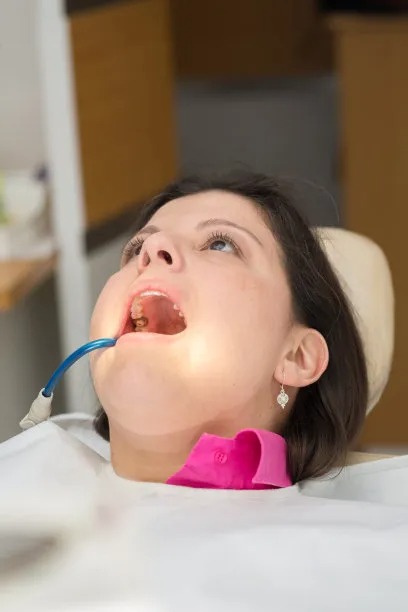Essential Precautions You Should Know Before Undergoing a Dental Filling Procedure for Optimal Oral Health
Summary: Undergoing a dental filling procedure is an essential aspect of maintaining optimal oral health, particularly when it comes to treating cavities. However, before you sit in the dental chair, there are several precautions you should be aware of to ensure a seamless experience. This article discusses vital preparations, necessary consultations, understanding the procedure, and post-treatment care. By understanding these four crucial aspects, patients can arm themselves with knowledge that not only promotes comfort but also aids in preserving the longevity of the filling. Optimal oral health is achievable when one is well-prepared and informed about their dental treatment.
1. Necessary Preparations Before the Procedure

Before undergoing a dental filling, proper preparation is essential. Start by scheduling a consultation with your dentist to discuss the specific filling material that would be best suited for your situation. Various options such as composite resin, amalgam, or glass ionomer fillings have different characteristics and longevity, which will affect the outcome of your treatment.
In addition to understanding the filling materials, you should also prepare for any preliminary dental work if needed. This may include addressing issues such as gum disease or excessive decay that could complicate the filling process. Ensuring that your dental health is at an optimal state can contribute greatly to the success of the procedure.
Finally, it’s advisable to make arrangements for transportation if you anticipate feeling groggy from any numbing agents or sedation used during the procedure. Planning for recovery time afterward will ensure you are not rushed or stressed, allowing you to focus on healing.
2. Consultations: The Key to a Success
Consultations play a pivotal role when planning for dental fillings. Ensure that you communicate your medical history and any allergies to your dentist. Certain anesthetics or filling materials may trigger allergic reactions if you are not transparent about your past. This conversation will help in customizing your treatment plan accordingly.
Furthermore, discussing any dental anxieties you may have is crucial. Many dental practices have protocols in place to aid anxious patients, including sedation options or techniques to create a calming atmosphere. Having this discussion prior to the procedure can help make you feel more comfortable and less anxious.
Lastly, do not hesitate to ask questions about the process, duration, and after-care. Understanding what will happen step-by-step can alleviate apprehensions. Clarity can transform uncertainty into confidence when engaging in any dental treatment.
3. Understanding the Dental Filling Procedure
Before the procedure kicks off, it’s essential to have a clear understanding of the steps involved. Initially, your dentist will begin by numbing the area where the filling will be placed. This is done using a local anesthetic to prevent discomfort during the drilling process.
Once numb, the dentist will drill out any decayed material, ensuring that all decay is removed before proceeding with the filling. The use of a dental laser is also an option in some practices for more precise decay removal, which can enhance the overall experience.
The final step involves placing the filling material in the cavity. Depending on the material, your dentist will shape and polish it to match your natural tooth structure. This ensures that the filling is not only functional but aesthetically pleasing as well. Understanding these steps can help mitigate the fear of the unknown.
4. Aftercare for Optimal Healing
Post-treatment care is just as crucial as the steps leading to the filling. Immediately after the procedure, avoid eating until the numbness wears off to prevent biting your cheek or tongue. When eating resumes, prefer soft foods that will not irritate the area. This will ensure a smooth recovery.
It is also essential to maintain good oral hygiene after a filling. Brush and floss regularly but do so gently around the filling to avoid dislodging it. Pay attention to any sensitivity as this may indicate that the filling needs attention or adjustment from your dentist.
If you experience persistent pain or discomfort beyond a few days, consult your dentist promptly. Early intervention can prevent complications and ensure that your dental fill is functioning as intended.
Summary:
Understanding the essential precautions before undergoing a dental filling can lead to a successful and stress-free experience. From adequate preparation to comprehending the procedure and embracing post-treatment care, being informed allows for optimal oral health. By taking these necessary steps, patients can ensure their fillings last longer and contribute positively toward their overall dental wellbeing.
This article is compiled by Vickong Dental and the content is for reference only.



